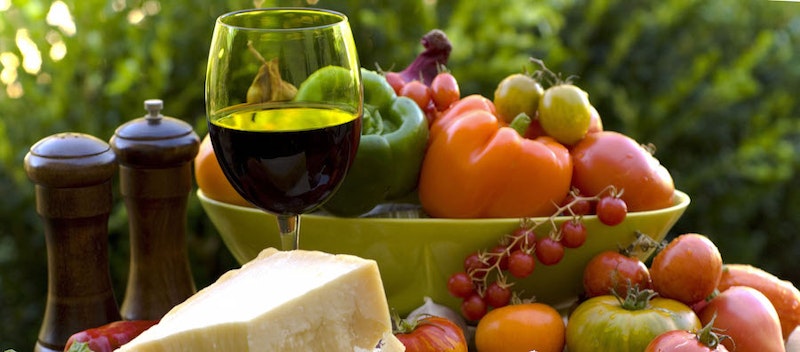In case you hadn’t heard, the government is doing its five-year review of nutrition guidelines, and the advisory committee recently released a whopping 571-page draft report. The recommendations won’t be final until later this year, but based on past experience we're not likely to see major changes to the draft. The news is good for brunch lovers — guilt-free eggs and coffee! — but not so great for fans of dessert.
Here’s the top news:
- Sugar is on the hit list. Added sugars are clearly bad for us, but they’re about 16 percent of our calories (depending on total calories, that’s as much as 20 to 30 teaspoons a day!). The new rules would slash that to about 5 percent. Just replacing sugars with fake sweeteners won’t upgrade your diet, so swap in something healthy instead, like whole fruit. That way you’ll cut down on sugar and get fiber, vitamins, and minerals, too.
- Refined grains are nearly as bad. White flour is mostly simple carbohydrates, and in our bodies they act a lot like sugars. So to boost fiber and other nutrients, go for whole grains whenever you can — most of us don’t get nearly enough.
- Fat is fine — mostly. You no longer need to watch how many of your calories come from fat (versus carbs and protein). That said, do still keep an eye on saturated fats (the kinds that are solid at room temperature, or anything that says “hydrogenated”).
- Relax about cholesterol. Turns out, cholesterol in food isn’t a real concern, so there’s no hard limit on it anymore. Yes, eggs are now OK — at least for most of us. Your doctor still might have something to say about it though, so as always, be sure to check before making any major changes in your diet.
- Coffee is good for you! Drinking moderate amounts, up to three to five cups, is linked to a lower risk of type 2 diabetes and heart disease. Just watch the extra calories from cream and sugar.
- Red meat, not so much. Red meat is loaded with saturated fat, so it’s a good idea to cut down on it for your health — and for the environment. Animal sources of food have a larger environmental impact than plant sources. (The committee tried to take a big-picture view of the food landscape.)
Like certain Facebook relationships, some things are complicated:
- Seafood. It’s still good for you, but it’s tricky. Overfishing and toxins like mercury are real concerns. These days, farmed and wild fish have generally similar pluses and minuses, so a mix is best.
- Alcohol. Yes, moderate drinking can be good for your heart, but it can also cause problems ranging from accidents and falls to increased risk of breast cancer in women. If you don’t already drink, don’t start just for the health benefits.
- Caffeine. The jury is still out on the safety of high-caffeine drinks like energy shots and products like 5-Hour Energy, Monster, and Red Bull. Kids and teens shouldn’t be drinking them, though.
Bottom line:
We eat too much sodium, saturated fat, refined grains, and added sugars.
To change that, here’s how we should be eating:
- Lots of vegetables, fruit, whole grains, seafood, beans, and nuts
- Some low- and nonfat dairy; moderate alcohol (not for everyone)
- Small amounts of red or processed meat
- Very little sugar and refined grains






